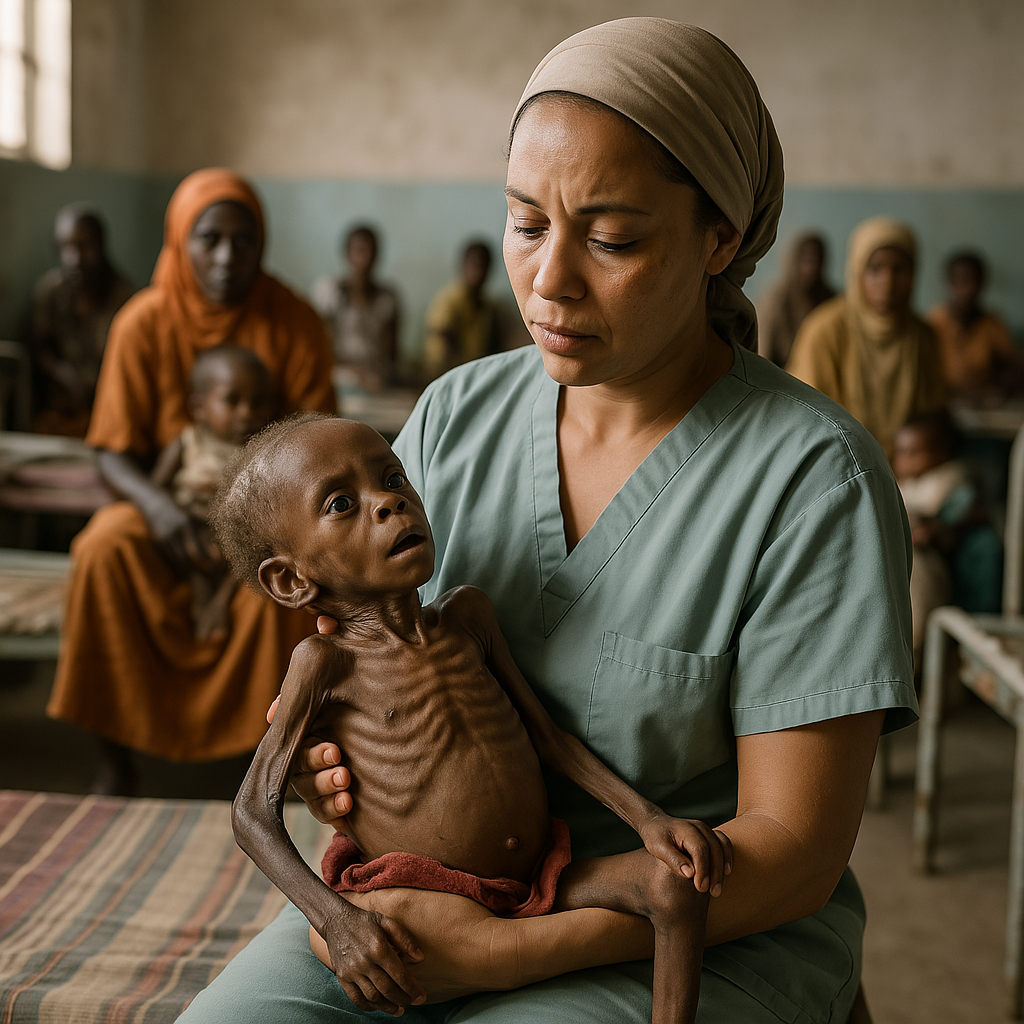Global Funding Cuts Jeopardize Nutrition for 14M Children, UNICEF Warns at Summit
UNICEF Urges Immediate Action as Millions of Children Face Life-Threatening Malnutrition Due to Severe Funding Shortfalls.

As world leaders convene at the Nutrition for Growth Summit in Paris, UNICEF has issued an urgent warning: at least 14 million children worldwide are at risk of losing access to life-saving nutrition support and services due to ongoing and anticipated global funding cuts. The organization’s preliminary analysis paints a grim picture of the consequences if swift and significant investments are not made to protect the most vulnerable.
This funding crisis emerges at a moment of extraordinary global turmoil. Children are increasingly affected by record levels of displacement, escalating and protracted armed conflicts, widespread disease outbreaks, and the intensifying impacts of climate change. All of these crises are compounding barriers to proper nutrition and escalating child malnutrition rates, especially in fragile and emergency contexts.
“Over the last decades, we have made impressive progress in reducing child malnutrition globally because of a shared commitment and sustained investment,” said Catherine Russell, UNICEF Executive Director. “Since 2000, the number of stunted children under the age of five has dropped by 55 million. Millions of lives have been saved. But this progress is now at risk of unraveling.”
Dire Impact in 17 Priority Countries
The consequences of these cuts are particularly severe in 17 high-priority countries, many of which are already struggling with chronic food insecurity and humanitarian crises. Without additional funding, UNICEF projects that:
-
Over 2.4 million children suffering from severe acute malnutrition (SAM) may not receive Ready-to-use Therapeutic Food (RUTF), a critical intervention proven to save lives.
-
Approximately 2,300 stabilization centres, which provide intensive care for severely wasted children with medical complications, are at risk of closure or drastic reductions in services.
-
Nearly 28,000 outpatient therapeutic centres supported by UNICEF are threatened, with some having already shut down or significantly scaled back operations due to lack of funds.
These services are often the last line of defense for children suffering from severe malnutrition, which, if left untreated, can lead to permanent developmental damage or death.
A Crisis for Women and Girls
The situation is especially precarious for adolescent girls and women, who face disproportionately high rates of malnutrition. Even prior to the funding reductions, the number of pregnant and breastfeeding women and adolescent girls suffering from acute malnutrition rose from 5.5 million in 2020 to 6.9 million — a 25 percent increase in just a few years. Without sustained investment, these figures are expected to rise further, putting both mothers and infants at grave risk.
UNICEF’s Response and Call to Action
To combat the growing crisis, UNICEF launched the Child Nutrition Fund (CNF) in 2023 with initial support from the UK Foreign Commonwealth and Development Office, the Bill & Melinda Gates Foundation, and the Children’s Investment Fund Foundation. The CNF is a long-term financing mechanism aimed at strengthening national systems to prevent, detect, and treat undernutrition in children and women.
UNICEF is now urging governments, international donors, and philanthropic partners to bolster their support for the CNF and similar flexible funding mechanisms. It also calls on national governments to allocate greater domestic resources toward nutrition and health systems.
“Good nutrition is the foundation of child survival and development,” said Russell. “It offers some of the most cost-effective returns on investment in human capital. The benefits will be seen in stronger families, healthier societies, and more resilient nations.”
The Stakes Are Global
The implications of this crisis extend far beyond individual communities. As malnutrition rates rise, children are at increased risk of illness, cognitive impairments, poor school outcomes, and ultimately reduced productivity in adulthood. These effects threaten to undermine decades of global progress, widen inequality, and contribute to instability in already fragile regions.
UNICEF stresses that the global community must act immediately to avert a large-scale nutrition crisis. The tools to prevent and treat child malnutrition exist — but without funding, they cannot reach the children who need them most.
As world leaders debate priorities in Paris, UNICEF’s message is clear: protecting children’s right to nutrition is not optional — it is a moral, economic, and global imperative.
- READ MORE ON:
- Nutrition for Growth Summit
- UNICEF
- Children
- nutrition










